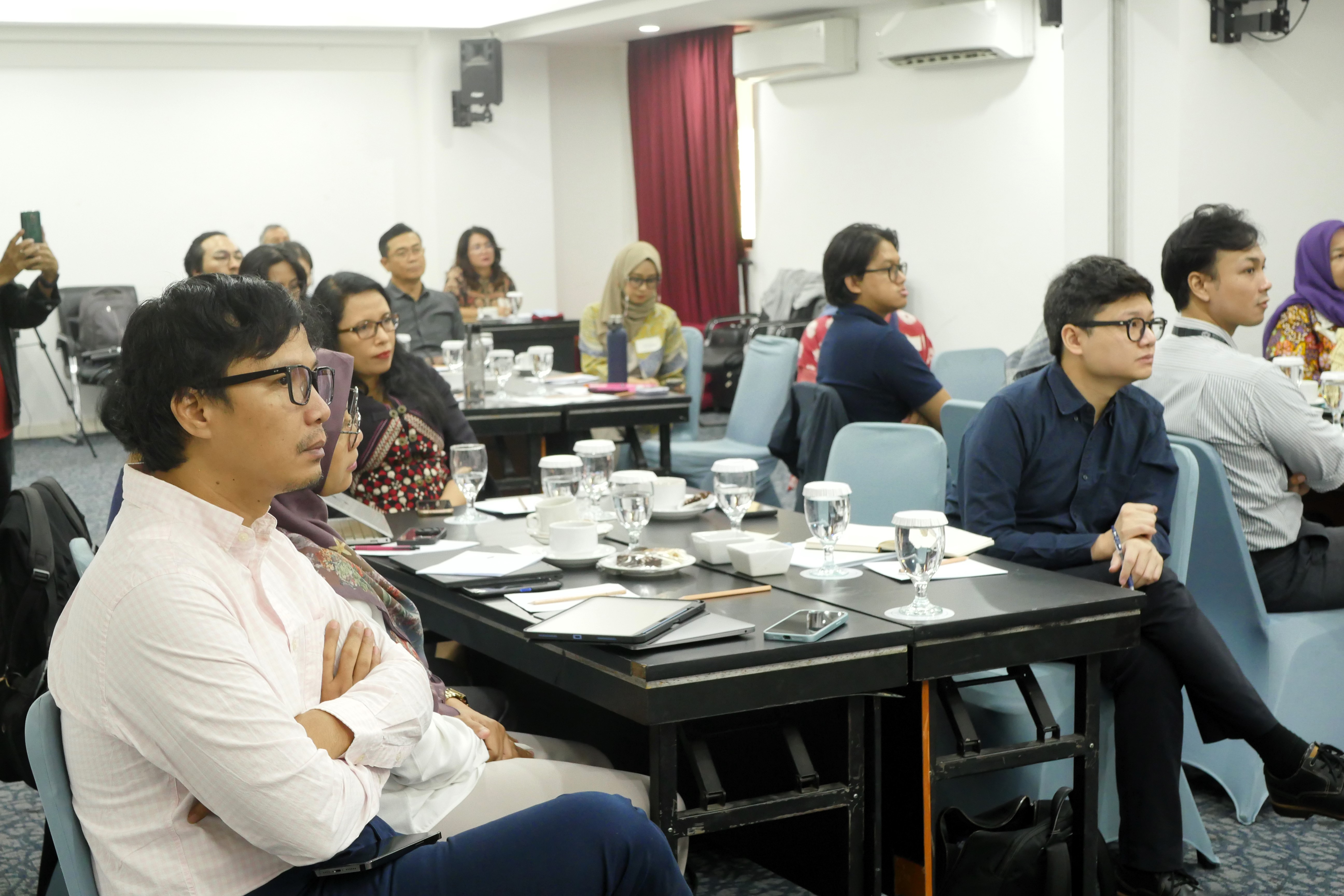UNDP Empowers Gender Equality and Social Inclusion (GESI) Task Force with "Train the Trainer" Workshop
September 5, 2024

GESI is an integral part of day-to-day operation at the UNDP Indonesia office
Approaching the Gender Seal certification renewal, UNDP Indonesia held a Training of Trainers workshop on 8 August 2024 to empower the Gender Equality and Social Inclusion (GESI) task force. This workshop is part of the ongoing effort to maintain the highest standards of GESI, as recognized by the UNDP Gender Equality Seal.
UNDP’s offices worldwide have stepped up their commitment to advancing Gender Equality and Social Inclusion. Over 120 UNDP’s offices, including Indonesia, have maintained efforts to transform policies and impacted communities through gender seal certification. The certification covered seven work areas in the country office, including management systems, capacities, enabling environment, knowledge management, and communications, programs, partnerships, and development results and impact. Since 2020, the Indonesia country office has claimed its Gold certification for the last three years. Maintaining the gold status is a continuous commitment to advancing GESI.
The participants, comprising the 25 gender task force members from diverse units and programmatic teams in UNDP Indonesia, learned through a participatory and interactive approach to understanding the conceptual basis for implementing GESI. The workshop was designed to elevate the skills of GESI task force members in promoting GESI and integrating these perspectives into programs, projects, and operations. This learning process ensures that these principles remain at the core of UNDP’s work in Indonesia.
Dr. Mia Siscawati, the Head of the Gender Studies Program at the University of Indonesia, led the workshop as a facilitator and brought an instrumental perspective on the theoretical foundation of the GESI approach. She mentioned, “Gender is a social construction where society perceives male and female in the way they behave. It is interchangeable; however, some might be accepted, and some might not in today’s societies, for instance. We can always rebuild this social construction, for a better future with equal opportunities for both men and women.” She also explained the importance of championing both women and men to ensure transformative changes in diverse development fields.

Dr. Mia Siscawati and Participants during the workshop session

The GTF members learnt about the concept of GESI mainstreaming
The workshop included sessions on mainstreaming GESI and transformative approaches. Participants engaged in discussions and analysed real-life case studies presented by Daniel Dyonisius, the Head of Solution Mapping at UNDP Indonesia, who work directly on related projects. These examples provided practical insights into the challenges and opportunities in promoting GESI.
Daniel shared his insight through three case studies for an in-depth analysis of GESI approaches. He said, “Collective discussion on the three case studies suggests possible pathways to improve GESI knowledge management system in the CO, documenting not only gender-disaggregated data but also ethnographic and other relevant evidence on how gender intersects with other socioeconomic and cultural dimensions.” Through this session, the task force learnt to sensitise themselves to multiple realities outside their core working areas and to equip themselves on how to propose and identify recommendations.
Joyce Sinaga, Procurement Associate at UNDP Indonesia, pointed out the importance of the mainstream GESI approach in operation. She mentioned,” To foster a more equitable and inclusive environment, the UNDP operations team should integrate a GESI perspective into operations procedures from planning to implementation by actively considering and addressing diverse needs and barriers faced by different social groups.”
Following this workshop, the task force members will evolve into skilled trainers, capable of educating and inspiring others within our organization and beyond. Equipped with enhanced expertise, all participants are expected to spearhead initiatives, conduct training sessions, and support the integration of GESI perspectives across all programs, projects, and operations. This will help ensure that GESI is consistently prioritized and effectively implemented.
Written by Pramudita Lestari and Enggi Dewanti
Edited by Wiryawan Nugroho and Devi Nugraha

 Locations
Locations